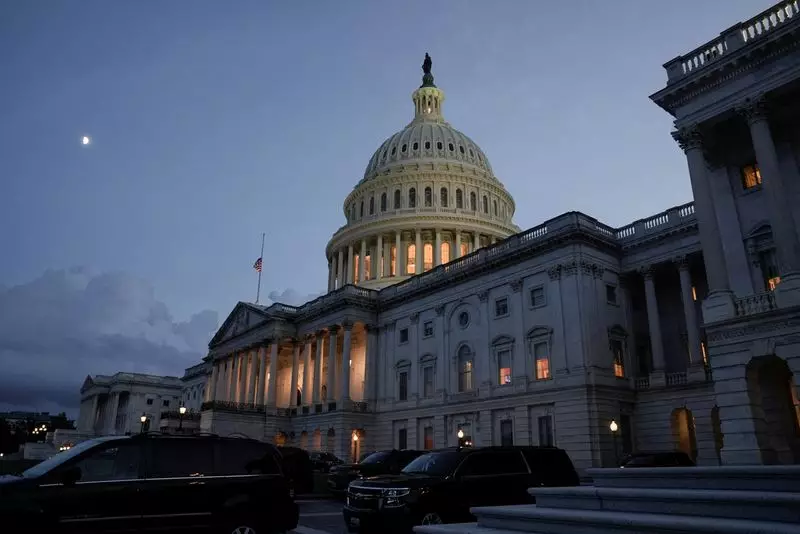The U.S. Congress recently passed a $1.2 trillion budget bill, which was done in an overwhelming manner with a 74-24 vote. This bill will keep the government funded through the fiscal year that began six months ago and will be sent to President Joe Biden for his signature to avert a partial shutdown. The departments of Homeland Security, Justice, State, and Treasury, including the Internal Revenue Service, will remain funded through September 30. However, it’s important to note that the bill did not include funding for military aid to Ukraine, Taiwan, or Israel. This lack of funding is included in a separate Senate-passed bill that the House of Representatives has chosen to ignore.
The business community has welcomed the passage of this spending bill, emphasizing the importance of a fully operational U.S. government for American businesses, workers, and families. Business Roundtable CEO Joshua Bolten highlighted the significance of stability for American businesses and expressed the commitment to working with policymakers to advance legislation that would enhance tax breaks for businesses and low-income families. This indicates that there is a consensus among key stakeholders about the importance of a functional government in supporting economic activities.
Even though the bill was ultimately passed, there were deep partisan divides and bitter disagreements within the Republican-led House of Representatives. Conservative Representative Marjorie Taylor Greene, for instance, threatened to force a vote to remove Speaker Mike Johnson for allowing the measure to pass. This showcases the internal conflicts within the Republican Party and the challenges faced by lawmakers in reaching consensus on critical issues. Additionally, Senate leaders spent hours on Friday negotiating various amendments to the budget bill that were ultimately defeated, causing a delay in the passage beyond the Friday midnight deadline.
The budget bill is being touted as a national security bill, with 70% of the funding allocated to national defense. Republican Senator Susan Collins described the bill as vital for strengthening military readiness, providing pay increases for servicemembers, and supporting allies. However, opponents of the bill argue that it is too expensive and could lead to inflation. Senator Rand Paul, along with other Republicans, raised concerns about the fiscal implications of the bill and its potential impact on taxpayers.
Looking ahead, there are challenges for Speaker Mike Johnson, who is facing dissent within his party due to his handling of the budget bill. The looming departure of two members of his caucus could further reduce his majority, making it increasingly challenging to pass future legislation. Additionally, the debate around additional funding for Ukraine has highlighted divisions within the Republican Party and raised concerns about Russia’s actions in the region. As lawmakers prepare to leave Washington for a two-week break, the dynamics within Congress remain uncertain, with potential implications for future legislative efforts.
The passage of the $1.2 trillion budget bill reflects the complexities of governing and the challenges of reaching consensus on critical issues. While the bill provides critical funding for key federal agencies and national defense, it also underscores the deep partisan divides and internal conflicts within Congress. Moving forward, policymakers will need to navigate these challenges to address pressing issues and ensure the effective functioning of the government.

